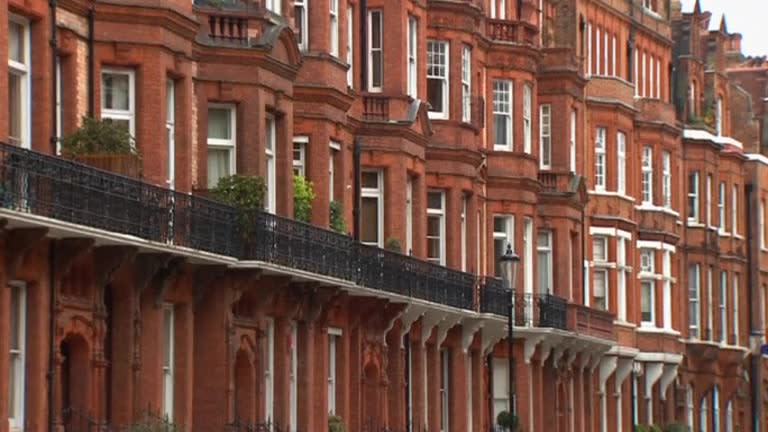Buy-to-let landlords set for debt shock in 2020

Buy-to-let landlords in seven out of ten UK towns are heading for a debt nightmare by 2020 - if interest rates rise as little as 2.5%. The worst town for landlords will be Salisbury - where they face a rent shortfall of almost £3,000.
The figures were put together by crowdfunding platform, Property Partner. It calculated that at the moment the average buy-to-let investor is making £3,419 a year in profit on each property - assuming an average property in each area let out for a typical rent, and with a 60% mortgage at 3%.
However, it highlighted that between now and 2020, landlords face a double whammy of tax changes (particularly the loss of higher rate tax relief on mortgage interest), and possible interest rate rises. It predicts that if rates rise 2.5% by 2020, the average buy-to-let property will be making an annual loss of £325.
The loss of tax relief is responsible for almost £1,000 of the fall in profit. The rest is made up of the impact of higher interest rates.
In some areas things will be even worse. Salisbury would be the worst hit. At the moment landlords currently make an annual net profit of £2,200, but after the potential changes, landlords will be losing an average of £2,984 per property per year.
The worst hit 10 (assuming mortgage rate of 5.5%)
Salisbury annual loss £2,984
Chichester annual loss £2,762
Truro annual loss £2,702
Cambridge annual loss £2,418
Lichfield annual loss £2,341
Exmouth annual loss £2,280
Warwick annual loss £2,260
Winchester annual loss £2,169
Chelmsford annual loss £2,169
Taunton annual loss £2,119
The biggest reversals of fortune would be in Cambridge, where the average profit today is £4,257 but would plummet into the red with a £2,418 annual loss in 2020. Similarly, in Winchester, an annual profit today of £5,835 would be wiped out, and landlords would be facing an annual debt of £2,169.
Overall, with interest rates 2.5% higher, buy-to-let would be unprofitable in seven out of ten towns and cities, and it would only make more than £100 a month in one in five locations.
Dan Gandesha, CEO of Property Partner, comments: "The phased withdrawal of mortgage interest tax relief will be felt across the country, but add in a modest interest rate rise, and many investors will see their rental profits completely wiped out." He argues: "When you factor in April's stamp duty hike on new property purchases, it's clear that direct investment in buy-to-let no longer adds up. Traditional landlords from Land's End to John O'Groats need to face up to the stark reality. In a few years, the whole structure of the UK housing market will have changed."
Don't panic
Before anyone calls their estate agent, it's worth bearing in mind that Gandesha has a vested interest in this argument, because his business is designed to be an alternative to buy-to-let. For buy-to-let investors, therefore, there are two reasons to remain optimistic.
First, there's a chance that his figures are over-stating the case a little, because while interest rates are certainly predicted to start rising as early as 2017, there's a good chance that these figures are factoring in an unnecessarily step rise in interest rates. At the moment, few predict interest rates in the UK to go much above 1.5% by 2020.
Second, these figures don't include any rental rises. When the tax changes kick in, the experts predict that some buy-to-let investors will sell up, but that a large proportion will simply increase the rent they charge in order to make the sums work. If enough of them are prepared to raise rents at the same time, tenants will have little choice other than to pay higher prices. Of course, this will be terrible news for tenants, but buy-to-let investors should still be able to make a profit.
But what do you think? Is this the beginning of the end for buy-to-let, or will tenants simply be made to close the gap and keep their landlords in profit? Let us know in the comments.





